
The James Cook Medal
The James Cook Medal has been awarded periodically by the Royal Society of New South Wales for outstanding contributions to science and human welfare in and for the Southern Hemisphere. Traditionally, the James Cook Medal has been the Society’s most prestigious award. It was established with a donation by Henry Ferdinand Halloran, who, in September 1942, decided to celebrate his 50 years as a member by making a donation to the Society. In May 1943, the Council decided to use the gift to establish two medals: the James Cook Medal and the Edgeworth David Medal.
In October 1943, the well-known sculptor Lyndon Dadswell (1908 – 1986) was commissioned to draw up a design for the James Cook Medal. It took him three years. Dadswell was an inspired choice. He went on to create sculptures for the Maritime Services Board building, Sydney (1952); Commonwealth Banks in Hobart and Sydney (1954) and Perth (1960); the Newcastle War Memorial Cultural Centre (1957); the R G Menzies Library, Australian National University (1964); the Jewish War Memorial, Maccabean Hall, Sydney (1965); and the Campbell Park defence establishment, Canberra (`The Tree of Life’, 1977). In 1978, the Art Gallery of New South Wales devoted a major retrospective exhibition to his work. The James Cook Medal was first awarded in 1947. It is awarded periodically for outstanding contributions to science and human welfare in and for the Southern Hemisphere. Since its establishment, there have been many distinguished recipients, including Jan Smuts, Albert Schweitzer, Sir Ian Clunies Ross, Sir William Hudson, Lord Casey of Berwick, Sir Marcus Oliphant and Sir Gustav Nossal.
From 2023 onwards, the James Cook Medal recognises the most meritorious lifetime contributions to knowledge and society in Australia or its territories made by an individual and conducted mainly in New South Wales. The recipient may be resident in Australia or elsewhere.
James Cook Medal 2025
The winner of the James Cook Medal for 2025 is Professor Michelle Haber AM FAA FAHMS, Executive Director of the Children’s Cancer Institute at UNSW Sydney.
Few individuals have had such a sustained, transformative impact on science, medicine and community outcomes – and fewer still have an equal record of advancing knowledge, building institutions, and translating discoveries into lifesaving practice as Michelle Haber. Across more than four decades, she has shaped the field of childhood cancer research both nationally and internationally. She has contributed seminal discoveries in cancer biology, pioneered new diagnostics and therapies, and created enduring national frameworks that ensure children with cancer in Australia now benefit from world-leading personalised medicine programs.
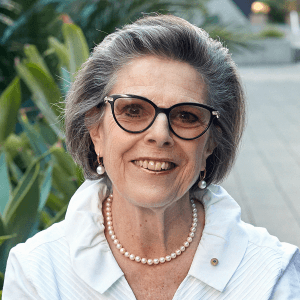
James Cook Medal 2024
The winner of the James Cook Medal for 2024 is Scientia Professor George Paxinos AO DistFRSN FAA FASSA FAHMS, an NHMRC Senior Principal Research Scientist with Neura and a Conjoint Scientia Professor of the UNSW School of Medical Sciences.
George Paxinos is a visionary of neuroscience and the world’s leading brain cartographer. He has published 59 books, with his first book being the most highly cited Australian publication of all time. His stereotaxic atlases of the brain and spinal cord of humans, rats, mice and monkeys have proven critical in facilitating research into the relationship between the human brain and neurologic or psychiatric disease, as well as animal models of these diseases, and assisting the development of psychotherapeutic drugs and accurate interventions in the human brain. His eminent lifetime contributions to neuroscience make him an exceptional James Cook Medal winner.
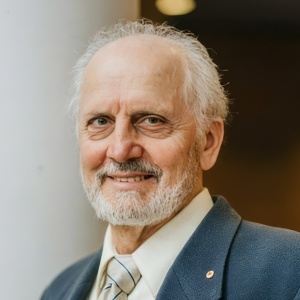
James Cook Medal 2023
The winner of the James Cook Medal for 2023 is Scientia Professor Helen Christensen AO FASSA FAHMS of the Black Dog Institute of UNSW Sydney.
Helen Christensen is a highly innovative scientist who has achieved an unparalleled level of impact on internet-mediated mental health both in Australia and worldwide. She is internationally recognised as founding the use of digital and online technology to deliver evidence-based prevention and intervention therapy for common mental illnesses. Her groundbreaking contributions have spawned a vast international research effort that incorporates academia, business, clinics, and community, not only leading the research field internationally but greatly improving the lives of many, many Australians living with mental illness.
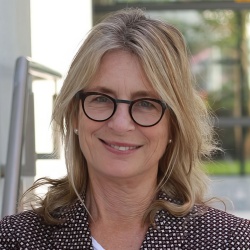
James Cook Medal 2022
The winner of the James Cook Medal for 2022 is Emeritus Professor John A Church AO FAA FTSE FAMS FAGU of the Climate Change Research Centre, UNSW Sydney. Professor Church is the world’s pre-eminent authority on the rate of 20th-century sea-level rise, with his work on quantifying historical changes having been pivotal in revolutionising our modern view of sea-level rise, including the first detection of the acceleration in the rate of rise. His ground-breaking papers, published with both national and international colleagues, explain a long-standing conundrum about the causes of the observed 20th-century sea-level rise. He has provided substantial improvements in estimates of ocean heat uptake, resolving discrepancies between observations and models as well as the causes. In addition, he has been an international leader in sea level assessments and projections and his work has established that anthropogenic climate forcing is responsible for the majority of observed sea level rise since 1970.

James Cook Medal 2021
The winner of the James Cook Medal for 2021 is Professor Rose Amal AC FRSN FTSE FAA, Scientia Professor of Chemical Engineering at UNSW (Sydney). Professor Amal is an acknowledged international leader in the field of chemical engineering. Her research has changed the way in which the properties of catalysts are understood, with her scientific breakthroughs in catalysis leading to real-world applications for sustainable environment and energy applications. In particular, she is renowned for her photocatalysis breakthroughs for large-scale industrial water treatment and the generation of ‘clean hydrogen’, i.e., the production of hydrogen from water using solar energy powered by an electrolyser, including the generation of hydrogen directly from seawater. Her contributions to science and human welfare in and for the Southern Hemisphere have been extensive.
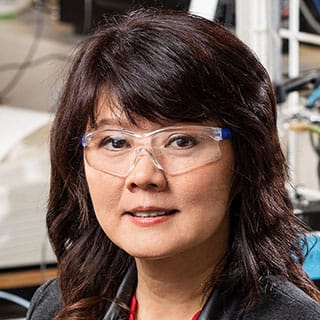
James Cook Medal 2020
The winner of the James Cook Medal for 2020 is Scientia Professor Richard Bryant AC FASSA FAA FAHMS of UNSW (Sydney). Professor Bryant has made many seminal advances in the diagnosis, treatment, and identification of neural, genetic, and cognitive markers of post-traumatic psychopathology. His work has challenged the pre-existing notions of acute psychological response to trauma leading to major policy and practice shifts internationally in relation to how trauma survivors are managed. Professor Bryant has translated his findings into improving the mental health of communities throughout the Southern Hemisphere (as well as many trauma-affected countries in the northern hemisphere).

James Cook Medal 2019
The winner of the James Cook Medal for 2019 is Scientia Professor Matthew England FRSN FAA of the UNSW Climate Change Research Centre. Professor England is recognised as one of the world’s foremost experts in how the world’s oceans control regional and global climate on time scales from seasons to millennia. His field of research spans physical oceanography and climate dynamics, where he has written seminal papers on Southern Ocean water-mass formation, Antarctic ocean-atmosphere-ice interactions, climate modes of variability, and ocean ventilation processes. Importantly, in the context of the James Cook Medal, England has a sustained track record of outstanding research and discovery in areas that make an impact on human welfare, both here in Australia and across other regions of the Southern Hemisphere, including improved predictions of rainfall and climate variability, discoveries of the oceanic drivers of severe drought and flooding rains, and quantification of the impacts of climate change and the fate of ocean pollution.

James Cook Medal 2018
The winner of the James Cook Medal for 2018 is Professor Elizabeth Elliott AM FAHMS. She is a Professor at the University of Sydney Clinical School and a practising paediatrician. This prize recognises Professor Elliott’s significant contributions to improving the health and quality of life, as well as human rights, of ill and disadvantaged children in Australia, the Asia Pacific and beyond. Her translational research has been at the forefront of advances in evidence-based paediatrics, rare diseases, gastroenterology and foetal alcohol spectrum disorder.
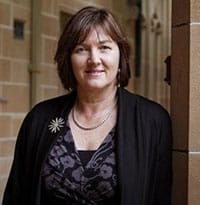
List of Past Recipients of the James Cook Medal
| Year | Recipient |
| 1947 | The Rt. Hon. J.C. Smuts |
| 1948 | B.A. Houssay |
| 1950 | Sir Neil H. Fairley |
| 1951 | Sir Norman McAlister Gregg |
| 1952 | W.L. Waterhouse |
| 1953 | Sir David Rivett |
| 1954 | Sir Frank M. Burnet |
| 1955 | A.P. Elkin |
| 1956 | Sir Ian Clunies Ross |
| 1959 | Albert Schweitzer |
| 1961 | Sir John Eccles |
| 1964 | M.R. Lemberg |
| 1965 | John Gunther |
| 1966 | Sir William Hudson |
| 1969 | Lord Casey of Berwick |
| 1974 | Sir Marcus L. Oliphant |
| 1975 | A. Walsh |
| 1977 | I.A. Watson |
| 1978 | Sir Lawrence J. Wackett |
| 1979 | Robert J. Walsh |
| 1984 | Ronald Lawrie Huckstep |
| 1985 | Donald Metcalf |
| 1987 | Phillip Garth Law |
| 1991 | Graeme Milbourne Clark |
| 1994 | Sir Gustav Nossal |
| 2013 | Brien Holden |
| 2014 | Martin Green |
| 2016 | David Cooper |
| 2017 | Gordon Parker |
| 2018 | Elizabeth Elliott |
| 2019 | Matthew England |
| 2020 | Richard Bryant |
| 2021 | Rose Amal |
| 2022 | John A. Church |
| 2023 | Helen Christensen |
| 2024 | George Paxinos |
| 2025 | Michelle Haber |
A brief citation and photograph for each recipient is available here.